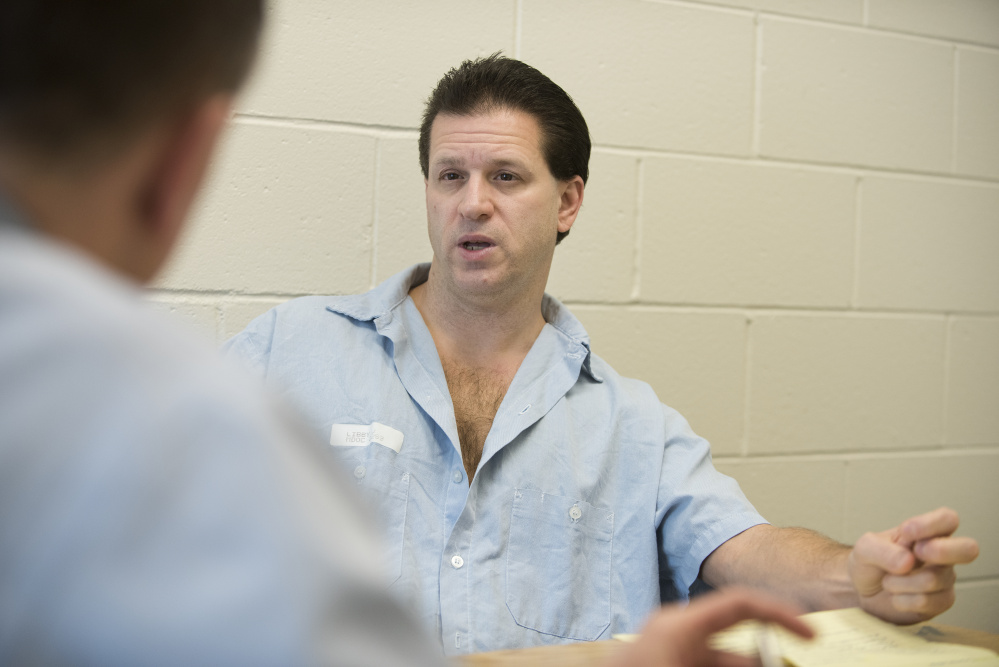Many inmates enter Maine State Prison detached, rebellious and refusing to cooperate with the programs available to them. At the prison, high-quality services are made available to inmates who wish to increase their knowledge and change the course of their lives. When a staff member takes the initiative and taps into the innate interests and needs of an inmate, that person learns that the programs offered can lead to many positive things, including greater confidence and an increased sense of self-worth.
In other words, the prison is becoming a positive environment supported by a staff of caring professionals who take their positions seriously. The administration offers a wide variety of academic, vocational and life-skills programs that are evidence-based and that offer a means for self-improvement to the people who participate. Staff members increasingly recognize that effective programs can empower inmates to take control of their lives. Good programs offer valuable tools which give people hope for change in the future. That in turn leads to lower recidivism rates, to the benefit of all.
One course of study is called “Psychology of Incarceration.” The program was developed by a man who endured over 20 years of incarceration within the confines of various maximum-security programs. Along with attaining a master’s degree over the course of his sentence, he developed this new educational model in conjunction with administrators and other inmates.
“Psychology of Incarceration” takes a cognitive behavior therapy approach: The person is led to understand that it was his own thinking that got him into prison, and it was that thinking process which could lead him out. Program participants come to realize that their lives are in their own hands, and it is they themselves who are responsible for any future success. They develop a positive self-image and renewed interest in education, employment and family connection. These attitudes provide a firm foundation for success after being released.
One inmate I know described to me how cocaine and heroin had seduced him, and how he even had traded food for drugs. He had been in and out of jails and mental hospitals most of his life, where he was exposed to people with “broken thinking” and no real code of moral behavior. He was sick and tired of living this way, and needing to maintain a false life on the outside. He described how the program reinforced what he had learned in an anger management program earlier, how to think constructively and develop the ability to focus and work towards his goals.
This man is artistically inclined and states that he always wanted to transcend the prison culture through self-expression. He stated that art for him is a means of putting the world into perspective, of taking the bad and the ugly and transforming that into something positive and beautiful.
He stated that “Psychology of Incarceration” got across to him that it was important to be in touch with his feelings, and how to deal with intense emotional responses to situations. “It opened up a new whole side of me, one that has allowed me to heal,” he says, and he calls it a “useful tool” that has brought hope into his life and has enabled him to move on. He has become a true inspiration for those of us who know him, and he shares his artistic skills with others in the prison.
It has become evident to the administration at the Maine State Prison that effective programming can help lower recidivism and serve as a gateway to a productive life after release by allowing allowing people to take control of their lives. The public and the Legislature need to understand the magnitude of the issues created if there is inadequate investment in treatment for those offended. The public must become more receptive to the possibility of transformation of those who are incarcerated.
Inmates need support to bridge the gap between life inside and the outside world and should be given a good opportunity to reassemble their lives in a positive way. The prison experience should be made as productive as humanly possible. Despite limited funding, Maine State Prison is making strides in that direction.
Jeffrey Libby is a certified literacy tutor and an inmate at the Maine State Prison.
Send questions/comments to the editors.



Success. Please wait for the page to reload. If the page does not reload within 5 seconds, please refresh the page.
Enter your email and password to access comments.
Hi, to comment on stories you must . This profile is in addition to your subscription and website login.
Already have a commenting profile? .
Invalid username/password.
Please check your email to confirm and complete your registration.
Only subscribers are eligible to post comments. Please subscribe or login first for digital access. Here’s why.
Use the form below to reset your password. When you've submitted your account email, we will send an email with a reset code.